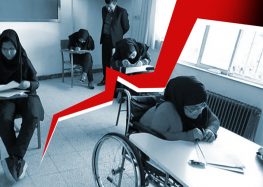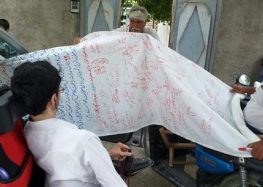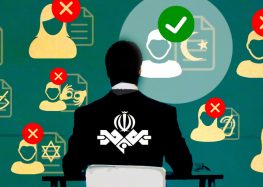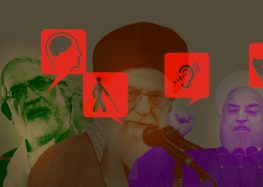Women and Girls with Disabilities Face Twice the Domestic Violence but State Provides Few Protections in Iran
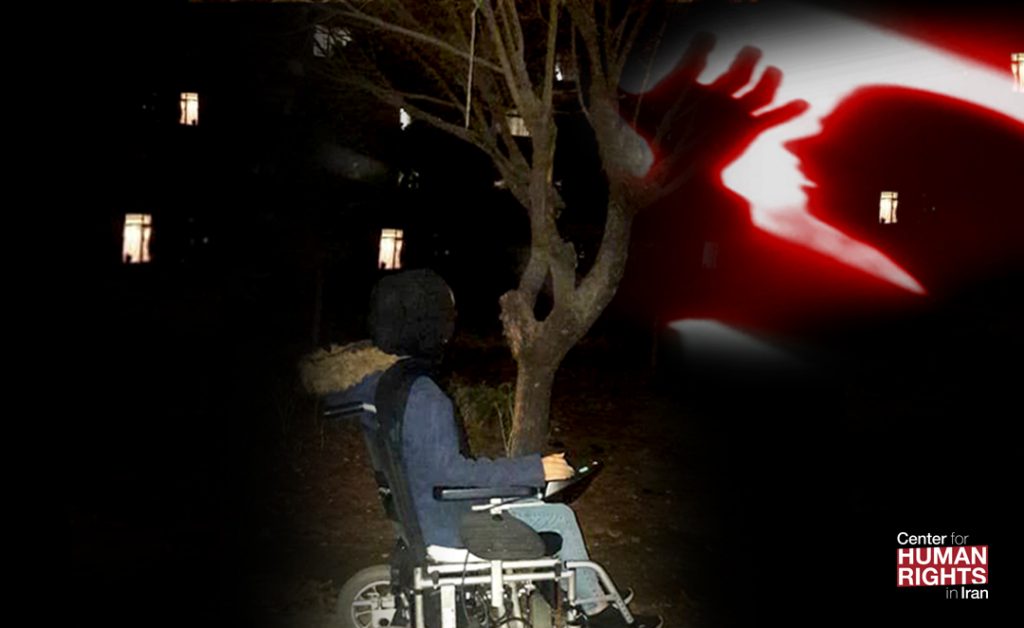
“If I had a [state-provided] nurse to help me with personal daily chores, I would not have encountered so much violence.”
“Sometimes my ex-husband hit me so harshly that I fell from my wheelchair. My husband would make fun of my disability and humiliate me with ugly words. I needed his help to use the toilet and take a shower and put on clothes. He would refuse to help whenever he felt like it. When I divorced him, he was granted custody of our child, even though he was a drug addict. Of course, I didn’t insist on gaining custody because I had no means of taking care of her.”
Those are the words of Fatemeh, a woman with a physical disability living in Tehran, who agreed to be interviewed by the Center for Human Rights in Iran (CHRI) to talk about her experiences with domestic violence. She is in her thirties, unemployed and receiving family assistance.
“Our disability is not a deterrent. It makes us an easy low-risk target for violent people,” she said.
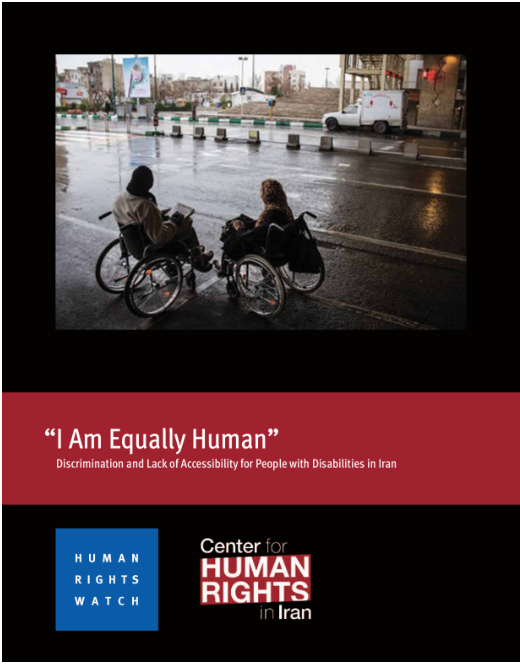
The 72-page report, “‘I Am Equally Human’: Discrimination and Lack of Accessibility for People with Disabilities in Iran,” documents the everyday barriers people with disabilities meet when going to government offices, healthcare centers, and when using public transportation.
Fatemeh’s experience with domestic violence is not uncommon. Around the world, women with disabilities encounter domestic violence in far greater numbers than other women.
“Women and girls with disabilities experience domestic violence at twice the rate of other women and they also experience forms of violence specifically because of their disability, including isolation, violence in institutions and the withholding of medication and mobility, vision and hearing aids. In particular, women and girls with disabilities are more likely to be subjected to forced medical treatment and reproductive health procedures without their consent,” according to the UN’s 2017 report, “Situation of women and girls with disabilities and the Status of the Convention on the Rights of Persons with Disabilities.”
Fatemeh continued, “After my divorce, I entered into a temporary marriage [with another man], but then he, too, became abusive and didn’t want to help me with my daily chores. I did my best to minimize my need of his assistance but sometimes there was no choice.”
She stressed that the presence of a nurse, who is not a family member, to provide daily assistance on a state salary would greatly reduce instances of violence.
“Often when you become dependent on someone for your basic needs, that person can take advantage of you. If [Iran’s] State Welfare Organization (SWO) provided us with trained nurses then we could report instances of abuse and we could have a relationship with our spouses based on equality, without being dependent on them and they would not feel they could treat us badly,” she noted.
The SWO is denying services to people like Fatemeh, in violation of Iran’s commitments to the Convention on the Rights of Persons with Disabilities (CRPD) regarding protecting women with disabilities from violence and abuse. Article 6 of the convention states, “States Parties recognize that women and girls with disabilities are subject to multiple discrimination, and in this regard, shall take measures to ensure the full and equal enjoyment by them of all human rights and fundamental freedoms.”
Lack of Laws and Programs to Protect Women with Disabilities
“There are no particular protections for women with disabilities in Iran’s laws. Not only that, there are laws that make it easier to commit violence against them or prevents them from filing charges,” said children’s rights attorney Hossein Raisi in an interview with CHRI.
He continued: “According to Articles 301 and 305 of the Islamic Penal Code [this portion of the law is not available in English], if the victim of a crime is ‘mad or insane,’ the perpetrator would not be punished by retribution. That means that the life and well-being of persons with disabilities is worth less than a ‘sane’ person.”
According to Raisi, “The emergency social services staff envisaged for responding to domestic violence complaints have not been trained to communicate with people with disabilities. They receive minimal training that does not include the special needs of women with disabilities. In addition, the hearing impaired and individuals with speech impairment cannot contact emergency services. Judiciary employees and policemen don’t get any special training either and therefore it is no surprise that complaints by women with disabilities about domestic violence almost never get reported.”
This lack of attention is the fault of legislators, the lawyer believes.
“Persons with disabilities have not been on the radar as far as criminal and judicial policy making is concerned. The reason is that policy makers in Iran try to base their decisions on theological grounds but Islamic theology does not have anything to offer people with disabilities other than recommending charity and compassion. Therefore, instead of relying on traditional theology, members of Parliament and policy makers need to look at modern human rights concepts in order to bring about real change.”
Raisi, who has represented many people seeking justice against domestic violence, told CHRI: “I was the court-appointed lawyer in a case in which a father with disabilities had [sexual] relations with his daughter who had intellectual disabilities and impregnated her. After birth the child was handed over to the SWO and the mother was returned home to her parents without the father being punished or anything to prevent the same thing from happening again.”
To overcome these shortcomings, CRPD’s Article 16 calls on state parties to “take all appropriate legislative, administrative, social, educational and other measures to protect persons with disabilities, both within and outside the home, from all forms of exploitation, violence and abuse, including their gender-based aspects.”
According to the Article, “States Parties shall also take all appropriate measures to prevent all forms of exploitation, violence and abuse by ensuring, inter alia, appropriate forms of gender- and age-sensitive assistance and support for persons with disabilities and their families and caregivers, including through the provision of information and education on how to avoid, recognize and report instances of exploitation, violence and abuse. State Parties shall ensure that protection services are age-, gender- and disability-sensitive.”
UN calls on Iran to Act Immediately to Confront Violence against People with Disabilities
In its May 2017 report on Iran, the CRPD expressed concern about the lack of information on the prevention of slavery, violence and exploitation, namely sexual violence, against women and children with disabilities in Iran and the absence of information about prosecutions and convictions in cases of exploitation, violence and abuse against persons with disabilities, and called on the government to take appropriate action.
The Islamic Republic of Iran was required to present a plan of action within a year of the publication of the May 2017 report but despite demands and pressure from advocates of the rights of persons with disabilities, nothing has been done to date.

